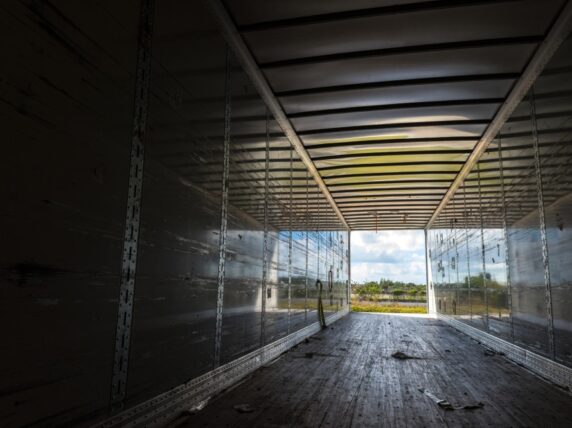Why INGOs need to do the heavy lifting
In 2021, Bond set out to understand why, as a sector, we have failed to redress the imbalances that exist between resource-rich international organisations and our counterparts in low and middle-income countries.
Bond ran a series of catalyst workshops using a systems approach to understand the issue. The premise of these workshops was not to ascertain whether these imbalances exist. We know they do. As a sector, we have known for decades that the way we work has perpetuated colonial mindsets and approaches. Historically, international non-governmental organisations (INGOs) have set the agenda for what ‘good’ development looks like; they have designed the programmes and utilised the jargon needed to release financial resources from their governments. In so doing they have, in essence, been supporting their governments’ global development agendas, and then approached local counterparts to both befriend and police them into implementing the programmes our donors expect. This dismal description may no longer accurately represent the majority of INGOs, but many have not moved far enough from this way of working.
Toeing the line
Even where INGOs have ‘co-created’ or ‘co-facilitated’ programmes, theirs has been the bigger voice, and local counterparts have learnt to toe the line. It is a pecking order; from donors to INGOs to local NGOs. INGOs have been good at creating local organisational ‘mini-me’s’ that have adopted development speak and jumped through compliance hurdles (with INGO support of course) but are still totally dependent on INGOs to unlock the resources they need to function and meet the needs of their communities.
Subscribe to our newsletter
Our weekly email newsletter, Network News, is an indispensable weekly digest of the latest updates on funding, jobs, resources, news and learning opportunities in the international development sector.
Get Network NewsIn the catalyst workshops, no one needed to consult their counterparts in low- and middle-income countries to identify the barriers that stop INGOs from moving beyond the ‘shifting the power’ rhetoric to actually walk the talk. The sector has known for some time what it needs to do – but it has been stuck.
I remember attending a course delivered by INTRAC in 1999 in Malawi, where the role of INGOs was discussed. Even then we were discussing who should be in the driving seat of bringing about change and transformation. It was agreed that local people know their own contexts best and have the solutions to their own problems. INGOs have a role and can continue to play a significant role, in bringing about lasting, positive change in the lives of people in the majority world as critical friends, facilitators and catalysts. But this has not been a big enough role for INGOs and their large development machineries.
So, to the barriers to making progress. These were identified, among others, as a lack of trust, our own governance setups, and compliance imperatives which are untenable to people whose language and culture are not English. Governments and INGOs have a definition of what good development should be, stemming from both their educational and political persuasions. INGOs are the trusted middle-men and our allegiance and loyalty have always been to those who keep us functioning (donors), not to those who are passive recipients of our charity. Our boards help to ensure this status quo, and collectively we haven’t done enough to stand up to donors over the years. Self-preservation and fear of an unimagined future have also kept us toeing the line. INGOs have comforted themselves that they are needed, and after all, we have an impact! Colonial money is better than no money.
A shift in perspective
Last year, something shifted. With Bond’s leadership, British INGOs began to make strides in the right direction and confront the barriers that have inhibited us from being led by the priorities of the people we serve.
Three working groups were established to tackle the barriers and clarify what we mean by locally-led development and how we get there. If we are to rally more INGOs to make the commitment to becoming locally led, they must be fully informed of what it will take. Those already on the journey can get support through the community of practice and action learning sets present in Bond’s Supporting practice for locally led development group. And donors must gain an understanding of how their funding needs to change to enable INGOs to work in this way.
Over the years INGOs have consulted organisations in low- and middle-income countries to understand their expectations of our role. Rather than go back to them again as if we don’t know, which would be disingenuous, the Guide to Locally Led Development (to be launched soon – watch this space) has collated the results of various consultations and laid out a clear roadmap of the steps INGOs need to take to become truly locally led.
British INGOs have made the commitment to finally do what we have been promising, and that which our counterparts in low- and middle-income countries have been calling for, over many years. The role of our counterparts is not to come again to tell us what we need to do and how to change our organisations because we as INGOs understand best the barriers we face. Rather, their role is to walk alongside us as we go through the journey of change and – most importantly – hold us accountable to ensure that, this time, genuine change happens across the whole sector.
Join us today at our Power in Development Conference for our session Becoming locally led: a guide to support organisations, and hear from Angela Zamaere Smith, programmes director at All We Can, Dr Moses Isooba, executive director of the Uganda National NGO Forum (UNNGOF), Charlotte Timson, chief executive of Traidcraft Exchange, Lena Bheeroo, engagement and equity manager at Bond, Bonnie Chiu, managing director of The Social Investment Consultancy (TSIC) and Sarah-Jane Danchie supporting the managing director of The Social Investment Consultancy (TSIC).




